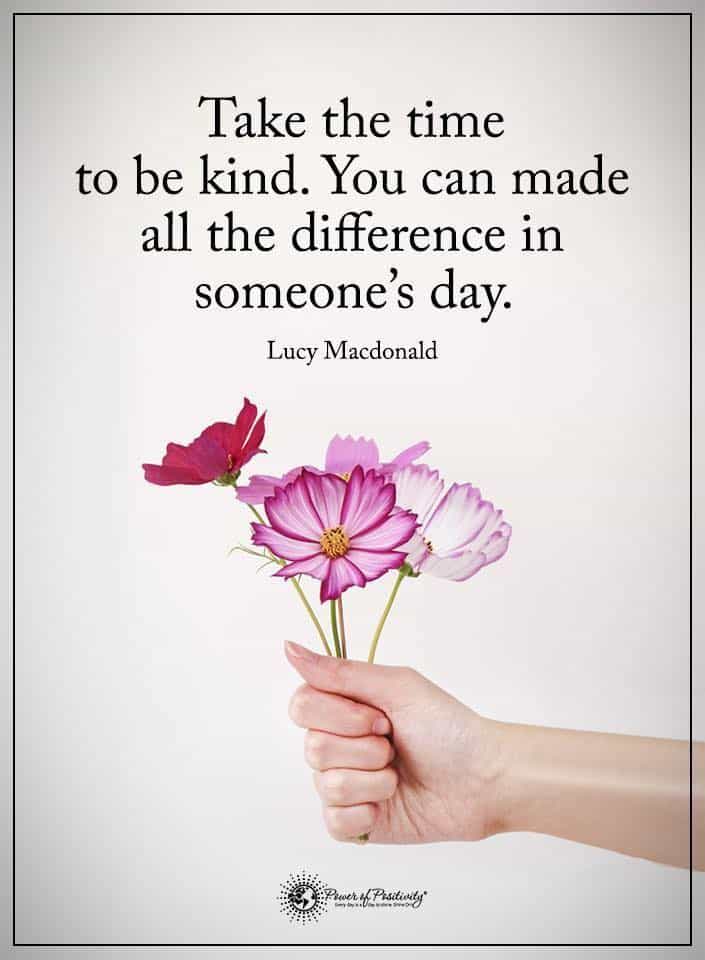Kindness is one thing prized by every society. But that doesn’t mean that it’s easy to be kind. Even the most moral person alive can snap and act disrespectfully from time to time. Staying positive and kind is hard, mainly because of how society shapes our responses. Sometimes it feels like the entire world can push you to be disrespectful. If you don’t do anything in your power to fight for yourself, others will step on you. But there’s a difference between standing your ground and being vicious. And there’s no shame in showing kindness.
Being kind isn’t just something you should do because someone expects it of you. Instead, it would help if you learned how to internalize that kindness. You need to incorporate acts of kindness into your daily routine. And it would help if you made it natural. Sure, it’s better to force yourself to be kind than mean. But you can’t keep up that kind of charade for your life.
If you fake being kind, you might create more trouble for yourself. That’s why, if you struggle with kindness, you must learn how to make it part of you. And sure, it’s never fun to think that you must train your brain to be compassionate. But that’s a reality you have to face. Plus, it’s important to remember that not being kind doesn’t make you an awful person. It just makes you a product of the environment you live in.
Four Easy Ways to Display More Kindness
It is always good to learn new things–above all, kindness. So, if you want to train your brain to show compassion, here are some ways to do it.
1 – Show Kindness to Yourself First
This concept might sound counterintuitive, but the first step you need to take is to learn self-compassion. You might think that the first step should be helping others. But that won’t make a lasting change. If you keep being harsh on yourself, that attitude will reflect how you treat others. If you constantly beat yourself down and are in a sour mood, that attitude will show in your actions. To make a lasting change, you must learn to be kind to yourself.
Most people deal with a lot of guilt and even self-hatred. And even if that’s not the case, people are never taught how important it is to love themselves. Not only that, but you have probably lived your life under a lot of pressure. For starters, your parents have probably stressed you out a lot, trying to make you become your best version of yourself.
And all this stress is likely to carry into your adult life. But this time, other people expect the world from you. Your boss, friends, and family have things to ask of you. You might wonder why this is relevant. And the answer is simple. When you put a lot of pressure on yourself, you’ll never be happy with what you’ve achieved. Because of that, you’ll have a lot of pent-up anger and frustration.
No matter how much you try to hold it in, it will inevitably affect how you interact with others. So, it would help if you practiced self-compassion. First of all, you need to take some time to accept yourself. Meditation and introspection can do you a lot of good. You can understand your needs and desires if you meditate for a few minutes daily. And, you can actively work to be more accepting and have a growth mindset.
It would be best if you made an effort to forgive yourself for all your imperfections. But, most importantly, you need to practice self-care. Take some time at least once a week to do something you like. Read, take a bubble bath, or do whatever else you might enjoy. This way, you can be more relaxed and improve your overall mood. The more at peace you feel with yourself, the better you’ll treat others. How you feel inside will reflect on the outside, and you’ll find that you’ll be kinder.
2 – Make an Effort to Listen
Kindness tightly links to your ability to empathize. For some people, empathizing is something that comes naturally. But not everyone has an innate inclination toward it. The good news is that learning how to empathize isn’t as hard as you might think. You need to make an effort to listen to people.
If you want to be kinder, you need to start to understand people. Most of the time, people don’t bother helping others because they assume it’s not worth it. If a random person on the street asks for some cash, you automatically believe they are trying to rip you off. But what if you’re wrong? You’ll never know unless you listen.
Sure, if someone asks for money, they might manipulate you. But, even still, you should try to listen to the request. That way, you’ll at least have a chance to determine if they need help. But this is an example of an isolated case. In most cases, you need to listen to understand someone’s story. Maybe they don’t even need help. Perhaps they need someone to talk to. Plus, it’s always good to know why people are acting the way they are.
For example, you might snap at them if a colleague doesn’t pitch in for a group project. You might think they are mean and selfish. But if you ask them why they are doing that, you might find they have their reasons. In that case, you’ll be more inclined to be kind to them. So, from now on, make an effort to listen actively. Always make an effort to ask questions before acting. This way, kindness will seem much easier to achieve.
3 – Display Kindness By Practicing Positive Thinking
A positive mindset is one of the most important things you can do when learning to be kinder. If your life is full of negativity, you will never be able to spread positive emotions into the world. Again, the way you act often reflects what you feel inside. And part of being negative means you always expect the worst out of life. It means you always expect bad luck and things to go badly.
Because of that, you will project all your fears into the world. And the people around you will have to suffer the repercussions of your negativity. Sure, not all people are always negative. But life is hard, so many people see no other way than to expect the worst. So even if you aren’t negative all the time, you have your moments of negativity. Or at least you’ll not be entirely positive.
If you want to learn kindness, practice positive thinking. And one of the best ways to do it is to practice gratitude. No matter how bleak the world might seem, always try to see the good in things. Make an effort to take some time and enjoy the small things. For example, lunch with a friend can be the highlight of your day if you learn to treasure it.
In the same way, helping someone in need can be the best thing you do on an average Monday. Learn to focus on the good stuff instead of dwelling on the bad. You can use affirmations or write the good things down to remember them. It’s also helpful to surround yourself with positive people, as they’ll support you. When surrounded by positivity, you’ll be much less likely to fall back into negative thinking patterns.
4 – Be Proactive
No matter how cheesy it sounds, practice does make perfect. This adage is true when you want to acquire any new skill. And kindness is a skill you need to learn, much like riding a bike is. Some people are athletically inclined, so they quickly learn to ride a bike. In the same way, some people are inherently kinder. But that doesn’t mean people can’t learn to be kind. All it takes is just a little bit of practice.
Maybe being kind doesn’t come naturally to you. And that doesn’t mean you are a terrible person. It just means you don’t have an inherent desire to help everyone. No one can judge you for that, as it’s hard enough for people to take care of themselves sometimes. But, if you desire to be kinder, you must be proactive.
At first, you’ll do acts of kindness rationally and intentionally. But, in time, these actions will become second nature. And you don’t need to do anything over the top. Just make an effort to do some small acts of kindness every day. Then, when you wake up, list some things you can do to help or be nice. For example, maybe you know that the cleaning lady likes a particular type of chocolate.
You can bring her some on the next day of work. Or you can take some time to buy your partner the flowers they like. Once acts like these become part of your daily routine, you’ll internalize them. Then, you’ll find that you’ll start being kind without being proactive about it.
Final Thoughts on How to Train Your Brain To Show Kindness
Kindness is something we all value as a society. But, for one reason, we struggle to learn how to practice it. Your parents have probably focused on teaching you to be ambitious and independent. But they probably didn’t focus too much on kindness. Or, at least, they didn’t try to teach you how to show it. Not showing kindness doesn’t automatically make you mean or immoral. You could be very moral and still not know how to show kindness.
If you want to show kindness, you need to be proactive. But first, you must learn to be kind to yourself. You’ll never learn to appreciate others if you don’t value yourself. It would be best if you also started practicing positive thinking. That positivity will reflect in the way you treat others. Learning to listen is essential, as that will help you empathize more. Lastly, it would be best if you made an effort to start doing acts of kindness. At first, you’ll have to be conscious about doing those acts. But, in time, your brain will be wired to default to kindness.

















 Community
Community

